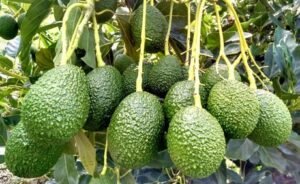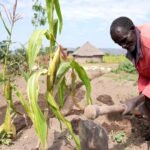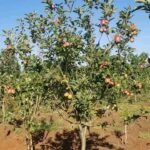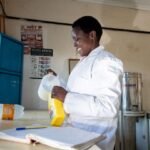By Rogers Aghan, February, 20, 2023, Kenya continues to enjoy a strategic position in the global space because of her tea export.
The country is the largest exporter of tea in the world with its nearly 28 percent contribution.
Tea sales account for 23 percent of total foreign exchange earnings and 2 percent of the Agricultural Gross Domestic Product.
Research facilities help the process of tea production by providing seedling. The latter could also be achieved by developing seedlings from cuttings.
Koech, a tea farmer says he prefers the latter considering that it takes about two years to nurture seedlings from picking the right shoots to transplanting.
It is recommended that spacing of 4 x 2¹/₂ is considered. 4000 tea trees can be planted on an acre of land.
Initially, it was frustrating being a tea farmer because of the horrible returns from poor payments. A kilogram of green leaf was sh12. Most farmers could take loans which they could barely repay using the little returns.
“After reforms we have seen a lot of improvement with a bag of green leaf going for sh20 per kilogram. We also got paid a mini bonus of Sh7.5 per kg” said Koech.
He added that last year they got sh30.5 per kg annual bonus and he was among the best paid in the west of Rift valley.
Concerns emerged before reforms were placed thus leading farmers to consider uprooting tea from their farms.
“Many of these tea farmers were looking into clearing the field and maybe going into dairy farming or growing other crops” a farmer stated.
According to a journalist addressed by the immediate former Cabinet Secretary at the Misnistry of Agriculture, Peter Munya, in September 2021, small scale farmers were not reaping from their hard work.
To mitigate against depreciating earning by the farmers, a minimum reserve price was set in July, 2021.
Small-scale tea farming is credited for over 65 percent of Kenya’s tea production with everything else produced by multinational companies.
The tea reforms were placed into law through Crops (Tea Industry) Regulation 2020 and Tea Act, 2020.
Through the Act, the government then set the reserve price, also referred to as the minimum price for Kenyan tea at the Mombasa tea auction at $2.43 (Sh275 at the time) per kg. Tea prices had fallen to $ 1.9 (Sh. 191), the lowest recorded in nearly ten years.
The introduction of the minimum price saw Kenyan factories under Kenya Tea Development Agency (KTDA) make more money thus generating higher revenue for farmers.
Subsequently, the government ordered that these farmers be paid 50 percent of the total value of green leaf by 5th of the following month.
Smallholder tea farmers have been impacted by inefficiency in the value chain as well as price fluctuations. This year alone, the tea revenue has grown by 3.5 percent thanks to the reforms as stated by Wilson Muthaura, Managing Director of the Kenya Tea Development Agency (KTDA).
Reforms have brought small-scale farmers back to the field and eliminated delay in payments.
Tea farmers anticipate that they could get Sh25 per kg or even more, this year.
Lack of fertilizer was an issue of concern before the reforms with farmers spending up to Sh5000 to purchase. Discrimination was also a problem with farmers from western Kenya complaining of the low bonuses they received compared to those from the Eastern region.
Therefore, the reforms are a hard blow to middlemen and cartels who had hijacked process in the value chain. These individuals worked directly with rogue factory directors-who got elected by few, majority shareholder farmers.
The Tea Act, 2020 brought onboard a fair system of one farmer, one vote, for smallholder farmers to elect factory directors.
One grower-one vote has given farmers with few acres a voice in election of factory directory eliminating such instances as gender inequality.







